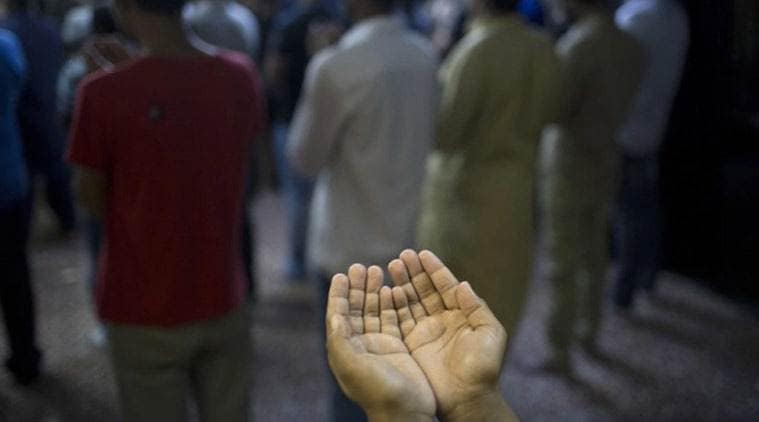 The aftermath of the crisis saw a Lal masjid becoming a “rallying cry for jihadi groups”. In 2020, there appears to be a “Lal Masjid redux” in Islamabad. (Picture for representational purose)
The aftermath of the crisis saw a Lal masjid becoming a “rallying cry for jihadi groups”. In 2020, there appears to be a “Lal Masjid redux” in Islamabad. (Picture for representational purose)
The siege of Lal Masjid in 2007 was an important moment in Pakistan’s political history. The state’s forces battled fundamentalist militants inside the mosque, causing heavy damage and a large number of casualties. The aftermath of the crisis saw a Lal masjid becoming a “rallying cry for jihadi groups”. In 2020, there appears to be a “Lal Masjid redux” in Islamabad. The February 9 editorial in Dawn describes the 2007 siege as “a textbook case of how not to handle a crisis”.
Maulvi Abdul Aziz, who was involved in the 2007 episode, has occupied the mosque along with a number of female seminary students. The government has responded by laying siege to the mosque once again.
The editorial hints that the Imran Khan government’s pandering to fundamentalist elements might have emboldened the Maulvi. It says: “how has a person with a violent background been able to defy the writ of the state with such ease, and that too in the federal capital? Moreover, Maulvi Aziz has issued a number of ‘demands’ to the government: He wants his old job back at Lal Masjid, along with Rs 250m and a plot to construct a new madressah. This is sheer blackmail and it is not understandable why the state seems to be playing along with such a hardened militant.”
The editorial concludes by asserting that while democratic protest is every Pakistani’s right, there cannot be calls to violence.
The response to such elements cannot be “slothful”.
Migrant workers
The February 8 editorial in the Kathmandu Post deals with a vexed issue, though its stance is fairly clear. To what extent can governments stand up for the rights of migrant workers outside their own borders: In the case of South Asian labour, particularly in countries in West Asia, the problem is compounded by the poverty of the workers themselves: “Out-migrants have been facing severe challenges — barriers to entering foreign employment — that put them in a hole even before beginning the job that was supposed to change their lives. Some of the notable barriers are exploitative fees collected by manpower agencies, air ticket prices, and visa and health checkup fees collected by the employing countries. Then, when the poor workers reached their destination, many would be surprised to find abusive work.”
That the Nepal government has been able to secure compensation for workers of Mercury MENA, a company that shut shop without paying wages to its workers, is welcome. That the process has taken over five years though, is not an encouraging sign.
The editorial lays the responsibility of the welfare of citizens working overseas squarely at the door of the government: “That the government has failed to ensure the safety and rights of workers that have given back over Rs 4.5 trillion to the country is a joke. Time and again, it has been reprimanded for failing to uphold the rights of out-migrants. Short of finding local employment with a living wage for over 3.5 million out-migrants, the government must do more, and do so immediately.”
Sri Lanka’s challenge
On February 4, Sri Lanka celebrated its 72nd independence day with pomp. Harim Peiris in an article in The Island on February 6, points out some of the unfinished tasks, the broken promises of independence after recounting the country’s many successes. The most noteworthy of the former include: “We have succeeded in having a gender quota for women in local government, ensuring that a minimum of 25% of all elected local government representatives are women. Sri Lanka’s basic free education and health care systems have ensured among other gains that we remain high on the global human development index, with a literacy rate of over 90%, long life expectancy and low infant mortality among other quality of life indicators. So, Sri Lanka’s achievements have been not insignificant in our post-independence period.”
But the challenges are equally pressing. First, “Sri Lanka has witnessed massive politically motivated violence in both our south and north, among the majority Sinhala youth, organising themselves through the JVP and the Tamil youth through the LTTE and similar organisations.”
While challenges of identity are not uncommon, they can be exacerbated: “Any society has competing interests and complex and competing claims to resources and political power. These claims and issues are usually resolved democratically through dialogue, debate and a civilised discourse. Sri Lanka’s failure has been the failure of our political institutions in every area, including the executive, the legislative and judicial branches of government to address these issues in an equitable manner, to be seen and widely accepted as equitable.” Overcoming the ghosts of the civil war, the article argues, will need greater civil and political rights.
A weekly look at the public conversations shaping ideas beyond borders — in the Subcontinent. Curated by Aakash Joshi